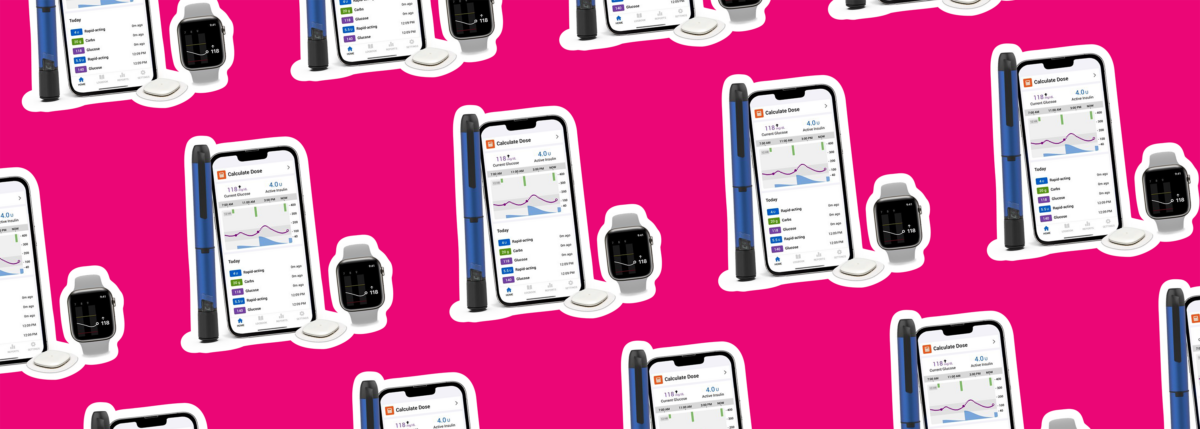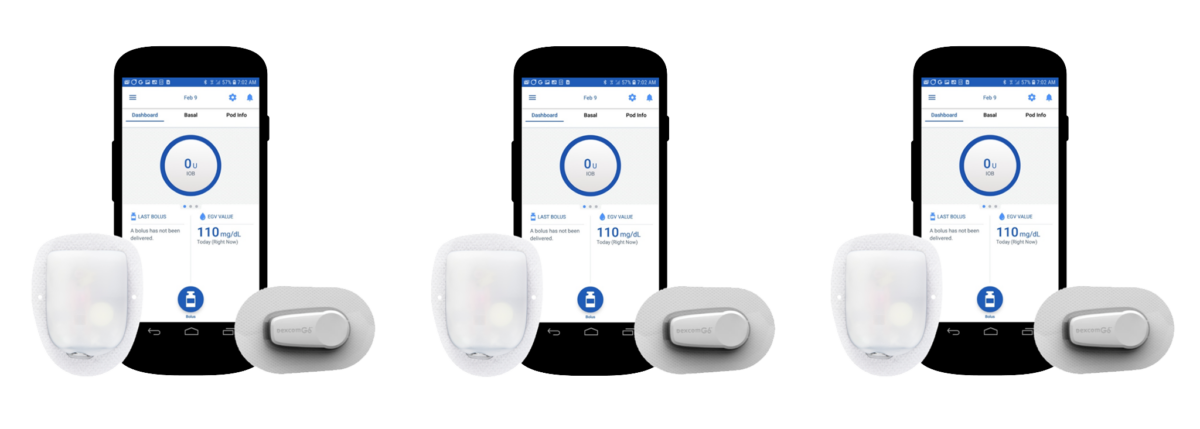COVID-19 Vaccines For Kids Ages 5 to 11 With Diabetes: What to Know
Written by: Lala Jackson
5 minute read
November 3, 2021
Editor’s Note: We have a simple goal: tap into the power of the global diabetes community to save lives. Visit coronavirusdiabetes.org to learn more about what you can do as a person with diabetes to keep yourself and others safe from COVID-19 until we’re all safe. Brought to you by the JDRF – Beyond Type 1 Alliance.
This article was published November 2, 2021.
If your child with type 1 diabetes is age 5 or above, you can now get them vaccinated against COVID-19.
On Tuesday, November 2, 2021, vaccine advisers to the US Centers for Disease Control and Prevention voted unanimously to recommend giving the Pfizer/BioNTech COVID-19 vaccine to children ages 5-11; CDC Director Dr. Rochelle Walensky endorsed the recommendation shortly after.
This follows the U.S. Food and Drug Administration (FDA) and Centers for Disease Control and Prevention (CDC) fully signing off on an EUA (Emergency Use Authorization, which is the same as what was done for the original wave of COVID-19 vaccines for adults) for the Pfizer/BioNTech vaccine for children ages 5 and above. The Pfizer vaccine is currently fully approved for ages 16 and above.
The FDA issues EUAs before full approvals out of an abundance of caution. Their approval process is rigorous and includes not only a thorough review of clinical trials that include thousands of participants, but also ensures manufacturing practices are safe.
Are kids even at risk for COVID-19?
While important to remember that having type 1 diabetes itself does not seem to put anyone more at risk for contracting the novel coronavirus, diabetes care itself can be made far more complicated after contracting COVID-19 and protecting anyone with diabetes from getting the virus is our ultimate goal.
Additionally, while the overall risk of severe COVID-19 for children is low, the virus has become the eighth leading cause of death for children. Long-haul COVID-19 symptoms, while difficult to manage for anyone, sometimes result in an autoimmune condition for children called Multisystem Inflammatory Syndrome (MIS-C). MIS-C is a condition where different body parts can become inflamed, including the heart, lungs, kidneys, brain, skin, eyes, or gastrointestinal organs. Ensuring your child does not contract COVID-19 is the best way to prevent the possibility of MIS-C.
In a recent interview with The Atlantic, Sallie Permar, chair of pediatrics at Weill Cornell Medicine and pediatrician-in-chief at New York-Presbyterian Hospital said, “the most important thing is that this vaccine takes three new diseases [MIS-C, long COVID and severe COVID-19] that we’re dealing with in children…and makes them vaccine-preventable…Vaccinating our children will make it so we can recapture school as we once knew it.”
Simply put — getting the COVID-19 vaccine significantly reduces the likelihood of a variety of intense immediate symptoms and long-term conditions linked with the coronavirus. That’s why we encourage everyone with diabetes to get vaccinated as soon as possible.
Is the COVID-19 vaccine safe for kids with Type 1 diabetes?
It has taken a while to have the COVID-19 vaccine approved for kids ages five to eleven because of how diligent the FDA and CDC advisory committees have been about reviewing data.
Overall results showed that the vaccine is very well tolerated in the five to eleven-year-old age group, with a 90.7 percent efficacy rate (i.e. 90.7 percent of participants were protected against all forms of COVID-19 after receiving the vaccine).
There were a few cases of mild COVID-19 reported among those who got the vaccine, but—similarly to trials in adults and teens—the vaccine was shown to protect 100 percent of those who received it against severe symptoms, long-haul COVID symptoms, hospitalization, or death.
About a fifth of trial participants had other health conditions; it is typical to ensure clinical trials include folks who have comorbidities so it can be shown how well the vaccine works when there are other health factors at play, like type 1 diabetes.
Here’s the rundown from the official trial summary:
The clinical trial for use of the Pfizer/BioNTech vaccine in ages five to eleven included 2,285 participants; about 20 percent had comorbidities like asthma and obesity. 1,528 participants received the vaccine while 757 participants received the placebo.
Participants in the trial received 10 micrograms (mcg) of the vaccine. All participants in the trial were followed for one month after the second dose. While the adult dose is 30mcg, trial results showed the same robust immune response in children with the lower dose as with those ages 16 to 25 who received the higher dose.
Of those who received the Pfizer/BioNTech vaccine, only three children contracted a mild case of COVID-19. Zero participants discontinued the trial due to adverse effects. Most reported side effects were similar to those experienced by teens and adults—headache, fatigue, muscle pain, or chills that lasted between one to two days. There were no reports of MIS-C, severe COVID-19, myocarditis, or pericarditis.
Finding a vaccine appointment
Many people are receiving the COVID-19 vaccine at their local pharmacy or through their primary care provider. Leading up to the anticipated approval of the vaccine for ages 5 and above, shipments have been sent out to pediatricians as well. If you have a regular care provider, you will likely receive a notification from them once they have vaccines available for your child.
Additionally, you can find a COVID-19 vaccine appointment near you at vaccines.gov. You can also text your ZIP code to 438829 or call 1-800-232-0233 to find locations near you. Each of these resources is endorsed by the CDC.
Every vaccine taken decreases the risk and prevents the spread of COVID-19. The more people who get vaccinated quickly the better, as it means better protection for everyone and a faster road toward “back to normal.”
Managing side effects—they’re normal!
Children in the vaccine trial experienced the same side effects as teens and adults—headaches, fatigue, muscle pain and chills. This is entirely normal. Because of the mild symptoms experienced by some, it is important to stay vigilant about blood sugar levels for the first 24 to 48 hours after receiving the vaccine.
The symptoms may also impact blood sugar levels—sending them slightly high or slightly low—so check levels frequently, stay hydrated and be familiar with your sick day routine. The mild symptoms your child may experience after the vaccine are significantly safer and more easily managed than potentially getting COVID-19 itself.
What about kids ages four and under?
In September, Pfizer CEO Albert Bourla said to expect data on the COVID-19 vaccine for ages 2 to 4 “before the end of the year.” The company is also currently running trials for ages 6 months to 2 years, but have not yet announced an expected timeline for this age group. Until then, continue practicing proven safety measures in your family to keep your children and others healthy.
What should I do if my child gets COVID-19 while waiting to be able to get the vaccine?
While most children who do contract COVID-19 do not experience severe symptoms or outcomes from the disease, it is important to remain vigilant and seek help if symptoms begin to get severe, blood sugar levels start to get unmanageable, or ketones are persistent. Remember that ketones can be in the system and diabetic ketoacidosis (DKA) can happen even if blood sugar levels appear normal.
Practice vigilant sick day management including frequent ketone and blood glucose monitoring (ideally with a continuous glucose monitor (CGM) if available), hydration, and insulin delivery. DKA is most likely to occur if your child stops taking insulin, which can happen if they’re not keeping food down and therefore blood sugar is running low. In these instances, have them sip carb-containing fluids like Gatorade for blood glucose levels under 180 mg/dL so that they can continue taking insulin. Hydration and insulin are key in clearing ketones. Know how to reach your diabetes care team and call them with any questions or concerns regarding sick day management.

Author
Lala Jackson
Lala is a communications strategist who has lived with type 1 diabetes since 1997. She worked across med-tech, business incubation, library tech and wellness before landing in the type 1 diabetes (T1D) non-profit space in 2016. A bit of a nomad, she grew up primarily bouncing between Hawaii and Washington state and graduated from the University of Miami. You can usually find her reading, preferably on a beach.
Related Resources

On November 20, 2024, Medtronic received FDA clearance for its latest InPen app. This advancement...
Read more

Eli Lilly and Company is helping patients and caregivers understand important changes to Medicare Part...
Read more

Already compatible with Dexcom’s G6 and G7 continuous glucose monitors (CGMs), the Omnipod 5 Automated...
Read more

